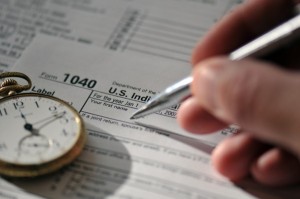 One of the most crucial details most accountants will need to consider are the various requirements and certifications needed to become a CPA. Certified Public Accountants enjoy some of the highest salaries within the accounting profession, but entry into this occupation is strictly controlled by education requirements, state laws, and eligibility requirements for the CPA certification exam. All accountants who aspire to a customer-facing job in taxation, auditing and other fields should keep in mind not only the certification required, but also the benchmarks that must be met in order to qualify for the exam itself.
One of the most crucial details most accountants will need to consider are the various requirements and certifications needed to become a CPA. Certified Public Accountants enjoy some of the highest salaries within the accounting profession, but entry into this occupation is strictly controlled by education requirements, state laws, and eligibility requirements for the CPA certification exam. All accountants who aspire to a customer-facing job in taxation, auditing and other fields should keep in mind not only the certification required, but also the benchmarks that must be met in order to qualify for the exam itself.
The CPA Exam: A Central Piece of the CPA Puzzle
According to the American Institute of CPAs, the CPA exam is often considered central to an accountant’s long-term career prospects as well as their ability to be promoted on the job. Considered the final piece of the puzzle, the exam is only open to accountants who have succeeded academically and fulfilled numerous state requirements that determine eligibility for the exam itself, and the broader public accounting profession in that particular state. In most states, only the CPA exam must be passed in order to become a fully licensed CPA. In order to be deemed eligible, however, accountants will need to clear a few hurdles.
Educational Requirements
All states require a minimum level of higher education for aspiring public accountants before they can sit for the CPA exam. In most states, this requirement includes 150 total credits of accounting-focused higher education. This means aspiring CPAs must attend both an undergraduate program as well as a graduate program in the field. Undergraduate business majors and finance majors typically qualify for the exam under most state rules as well, with the understanding that they must pursue Master of Science in Accounting or a Master of Accountancy after the undergraduate degree is received.
Work Experience
It’s not possible to become a CPA without at least a little bit of work experience. According to accounting laws in most states, accountants need to present documented evidence of at least two years of supervised experience in the field. Typically, this means accountants must work for a public accounting firm in a non-CPA, entry-level position for a minimum of two years. This two-year period must conclude prior to the actual examination date. If accountants attempt to take the exam prior to fulfilling the last month of the work experience requirement, their eligibility will be revoked and their fee will be forfeited.
Ongoing Professional Education
The CPA license is not one that is simply earned and forgotten. Instead, state laws require accountants to pursue ongoing professional development in the field to ensure that their accounting practices and principles are in line with the latest demands, GAAP guidelines, and technological changes. The most common requirement in this area mandates a 40-hour professional development requirement each year. This requirement typically can be satisfied by attending professional workshops, non-credit accounting classes, for-credit accounting classes, professional seminars and webinars, and industry conventions or trade shows. All professional development experience must be documented and submitted annually to maintain CPA certification.
Related Resource: Become a Tax Manager
Tough Requirements, But a Top-Notch Return on Investment for Accountants
The CPA title is a hard one to achieve, but it’s worth every penny for skilled accountants. With recognition as a Certified Public Accountant, professionals will be able to advance into senior accounting positions and managerial roles, taking on increased responsibility and dramatically increasing annual earnings. By understanding the full scope of certifications needed to become a CPA, accountants will dramatically enhance their career prospects in any customer-facing role.